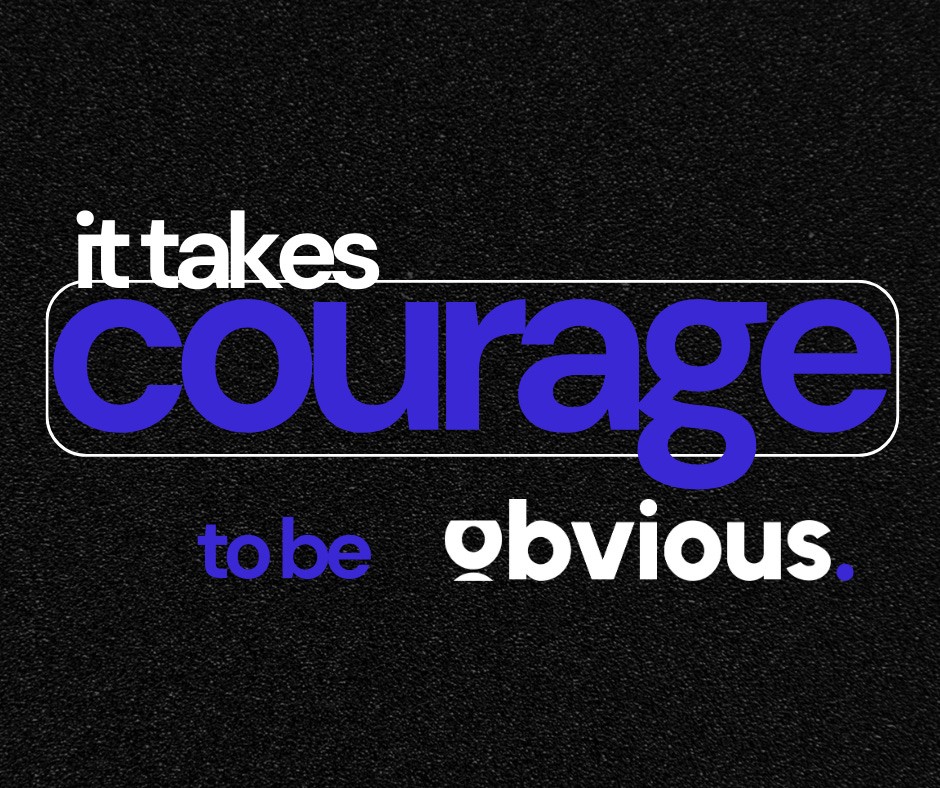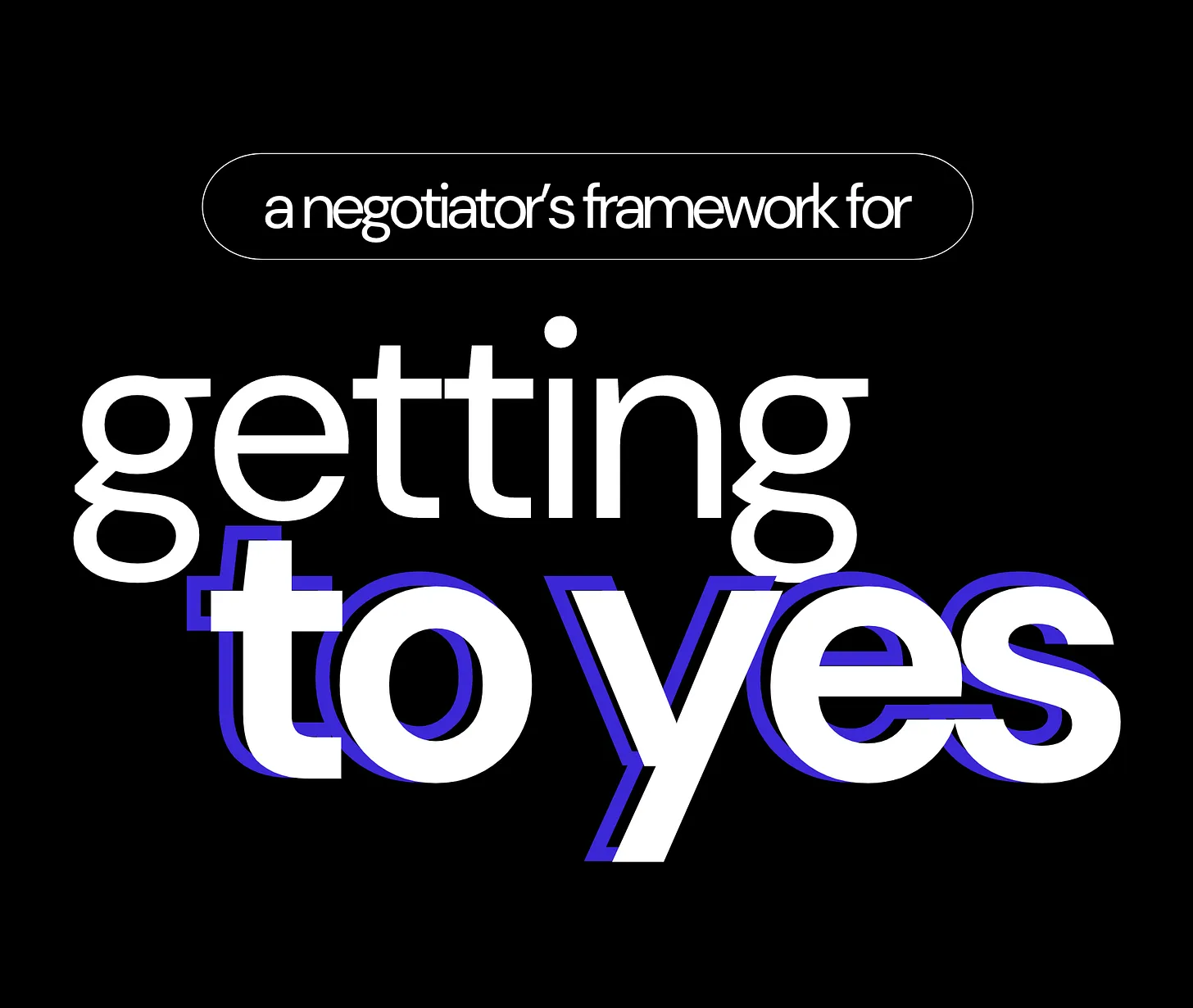Article
Why clarity takes courage, and differentiation takes guts.
We all want to stand out, but most fail to recognize and summon the level of courage it takes to be publicly seen as "very different."
Dec 1, 2023
Talk to any business operator, and they’ll tell you their company is fundamentally different, and that they want their positioning to make that difference clear and visible to others.
But to actually do what it takes to be and be seen as remarkable and exceptional in your category takes a level of courage and consensus that few companies can summon, and requires a level of commitment and conviction that even fewer can stomach.
I've seen this play out hundreds of times while helping companies rebrand, build their brand, and develop go-to-market strategies that position them to unlock new levels of growth.
Most companies want to be thought of as” special”, but most business operators are afraid to take a definitive stand, make a clear promise, and make their unique difference become the signature of their brand.
________________________________________________________
Common positioning pitfalls
Positioning work usually begins when the company recognizes a need for change — when they realize that their business isn’t being seen or truly appreciated for what they offer by as many people as it really should. Sometimes this is actively holding the business back — people have no idea why they are great or even what they do, so few are buying or repurchasing. Sometimes it's about to hold them back — they’re entering a new market, merging with other brands, or need to pivot.
They embark on a positioning exercise — either in-house or with an agency. The process usually begins with enthusiasm and confidence around the table — “Let’s be bold about who we are! We need to show and tell the world why we are so awesome!”
But as time goes on, strategic objectives get left behind in the kickoff decks and are forgotten in the meeting notes. People walk down from the strategy rooftop to get back to work on the ground floor of the business. Back in the day-to-day, perspective can be lost. Time goes by, and everyone gets together for another meeting to discuss positioning and the company’s differentiation strategy.
To truly differentiate and position a business, key decisions need to be made — decisions that aren’t simple and will affect what the business will do and not do.
What the business will say yes to, and what it will say no to. How the business wants to be seen, and how this will be different from how others appear. It all starts to feel harder than expected, rather complicated, and really overwhelming.
It can catch people off-guard to recognize the depth of thought required behind “positioning” goals. The unexpected complexity can give people a sense of unease, and opens the door for fear to creep in. Decision makers get nervous and start looking at competitors. They scroll their feeds, see what everyone else seems to be doing and saying. They forget to trust the process.
They start changing their aim from being definitively different and exceptional to customers, to trying out what others are already doing in the market.
As they study the playbooks of others, the game they want to play gets forgotten, and the challenges they know their company needs to overcome to win somehow gets eclipsed from view.
They lose confidence in themselves, and their conviction in the process. “Well…we don’t want to be seen as too terribly different…there’s definitely a lot of business books that talk about ‘same but different’...so maybe we focus less on being different and focus more on showing why we’re on the same level as the rest!”
The fear usually wins. They choose the safe path — but tell themselves they are differentiating.
They make the same points, but shuffle the words. They use the same branding approach as the leader, but change the colors or leading design elements. They tout the same benefits, but with a twist (AI-powered!).
The end result is they fit in nicely but don’t stand out. They say and do all the “right things,” but customers don’t feel “Oh, yeah. These people get it. This is right for me” when they encounter their message.
The fear to be seen as different —and being rejected by a few — keeps them forgettable and small to everyone.
Over time, being this conservative actually results in taking bigger and bigger risks, as you lose interest, relevance and authority with the people that matter.
If you underplay your hand to feel safe in the moment, over time, others will take your chips and win hand-after-hand. But it doesn't have to be this way.
Because if you can summon the courage and conviction to truly differentiate and position your business, it will unlock a whole new level of growth for you.It will make you remarkable in your category, qualify your leads better than any framework, keep your team inspired and innovating with purpose, and help you attract more of the talent that will make and keep you great.
Differentiated positioning is simple and powerful — but not everything that is simple in concept is easy in practice.
________________________________________________________
Positioning statements vs positioning strategy
“Positioning” is a standard strategy exercise. But more often than not, positioning isn’t approached as a strategy that is complementary to or aligns with the goals of the business, but instead as a descriptive marketing statement.
Shallow positioning doesn’t plant a flag or say anything meaningful, or enable the company to “own” their piece of the market.
This is a common a mistake that both in-house and in-agency folks make all the time. It’s usually born from trying not to ruffle too many feathers, or while checking the “what’s our USP” box as they rush to redesign the website.
Well-meaning teams will meticulously craft a clever new positioning statement, slap it up on the website and social profiles…and then wonder why their “positioning strategy” isn’t working. Incoming leads are just as unqualified as before. People are still saying “...huh?” when they scroll the website and see their stuff.
But it’s because they never really positioned themselves or their offering at all.
Too often, lazy or overly conservative positioning statements are just a rehash of what everyone else is saying, and therefore end up saying nothing at all. On the flip side, positioning can become overly tactical, and arrive at statements so hyper-specific that the offering feels novel and overly niche — which can keep the business thinking and feeling small, to itself and others.
Positioning-as-a-statement can work if you’re selling a novel product with low-stakes to a group of people tired of the mainstream (think: funky peanut butter craft brew to the group weary of basic lagers and IPAs), but it’s a poor approach if you want to sell and command value-based pricing for complex professional services or visionary endeavors.
Novel and overly niche offerings can be interesting to audiences, but in high-stakes or highly-competitive environments, being specific or interesting is not enough.
For complex businesses , there also needs to be clear value, believable credibility, and real urgency. This is because uncertainty and fear are running the emotional background of most sophisticated purchases.
It takes assertion, authority, savvy, panache, emotion, and incisiveness to draw people in, and get them to sit up, take notice, believe, and ultimately buy-in to what the company is all about.
Effective positioning is a strategy exercise aimed to accelerate renewal and growth through value differentiation, market relevance, emotional resonance, and lead qualification. It is so much more than a descriptive statement about the work you do.
________________________________________________________
What positioning should accomplish
A positioning strategy should fundamentally frame the unique value you deliver to your audience and convey the vision and founding ethos that defines your company — in a way that delivers advantage.
Here’s a quick way to determine whether you have positioned your company within your marketplace or not:
Is your driving philosophy and the thesis behind your business clear and inspiring to your team?
Are the unique collection of capabilities you offer appreciated, valuable and remarkable to your audiences?
Is the positive impact you generate for customers obvious, understandable, and compelling to the uninitiated?
If you can’t say yes to all of these, then shallow positioning is leaving money — and advantage — on the table.
It’s simple, yet hard to differentiate. It takes confidence, conviction, and courage.
This is because:
In order to make an assertion to the market about how you work differently, your team needs to live it out every day in everything you do.
In order to tout your unique expertise and capabilities, you need to actually be able to defend and prove your authority in those areas.
In order to make a clear promise to customers about the impact you can make in their lives, you have to actually make a meaningful difference in your customers lives.
It takes guts to be obviously different and make a unique assertion to your market.
Because when you take a stand, then people can not agree with you ,or even *gasp* reject you.
But when you stand with conviction about something that truly matters to your customers’ world, they will stand alongside you, and be drawn to you with a powerful magnetic force that cannot be compared to the play-it-safe-types that will morph to whatever is on-trend to fit in.
________________________________________________________
How to be obvious
Find out what is boring and what is unremarkable in your market and to your audience. Avoid those things.
Notice what is interesting or different in other companies and common themes in the makeup of your audience. Take note of those things.
Inventory the assets you have that are both unremarkable and notable in your industry and to your customers. Lead with those things.
Develop a clear thesis / simple compelling assertion that tells the “why” behind your company and the unique, specific impact it creates in people’s lives. Market these things.
Build your company, culture, and branding around strengthening, advancing and promoting your value thesis. Live out these things.
Have the courage to be obvious about what you stand for, who you work with, and the unique effect you generate by being unapologetically different. Stand tall in these things.
Businesses desire to be seen as specific or special, but customers want to see unique, compelling value and promise they believe in and can get behind.
It takes courage to be publicly very different from the rest.
It takes conviction to make a clear promise to your market, and see it through.
Few have the fortitude to actually do it.
But for those brave enough to differentiate, it will increase your odds and your advantage — and even let you change the game.
________________________________________________________
If you’d like to learn more about how a differentiated positioning strategy could help your business increase advantage and grow in competitive environments, I’d love to talk. Shoot me an email at beulah@beobvious.com with a short description of the challenge you face, and the goals you have, and I’ll respond personally with some thoughts.
Latest articles
stay in the loop


